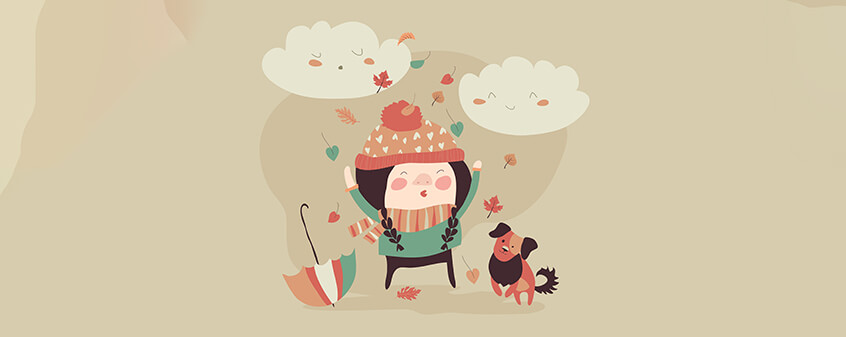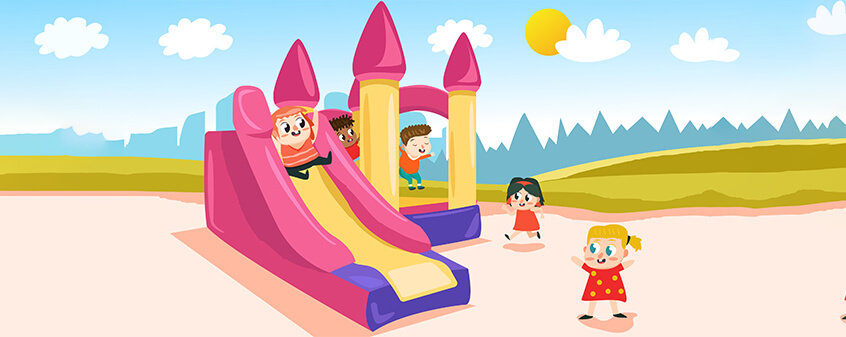A father traditionally presides over, provides for, and protects a family. In Indian tradition he is called the ‘kartha’ of the home. Through evolution, mythology, and tradition the father’s role has been that of a bread earner. The role of a father today, however, is changing. Biologically speaking you may be the father of your offspring, but what is it that makes you his dad? The difference is distinct yet subtle. For a house to become a home, it needs love, affection, and warmth, which can nurture it with devotion and sincerity. Similarly, a father becomes a dad when he has a relationship based on love, affection, and trust with his child. What type of dad you turn out to be depends a lot on what you have been through in your childhood. Practices in-built in your subconscious might make their presence felt. Hence, it’s essential to be aware of how and what we do with our children so that their subconscious bank has the best experiences.
Look around you and you will notice that each father– child relationship is different. Sit back and think about your relationship with your father. Was your father friendly? Was he strict? Was he ever ready to help? Or was he always aloof? The relationship with your father can, to a large extent, determine how you as a father shape your relationship with your child. En route your transition from father to dad, be aware of how your thoughts and actions can mould the character of your child."
The presence of a father is vital in the growing years of a child. Research has proven that a healthy father–daughter relationship is essential for a girl to have healthy sexual relationships in her later years. Sons too are influenced by their fathers. The absence of fathers in the lives of boys often leads them to drugs and violence.
Joseph is a relatively new father. His son is just two weeks old. As much as he is intrigued by the presence of the new person in his life, he is scared about how life will change for him. He feels a sense of responsibility for Joshua, who is tiny and seemingly helpless. Joseph says, ‘Joshua needs his mom for everything else, but he finds it easier to sleep next to me than with his mom. I think he feels more relaxed with me.’ This could be true because it’s possible Joshua gets more relaxing vibes from Joseph than from his already tired mother. Joseph traditionally might not play a major role in his son’s initial phases of life. But, with changing equations Joseph’s role too has changed. Dads today not just help clean the baby, but also handle the baby’s playtime and help work out his/ her sleeping patterns. Moms work too, sometimes longer hours than the dads. Families are more nuclear in nature. Support systems are not as strong as they used to be earlier. In this scenario, the role of the father has increased manifold.
I am a father. But what will make me a dad?
1. Touch: The sense of touch is very strong. Babies realize when they are being held by the mother and when by the father. Young fathers often feel that the baby is too fragile and delicate to be handled and stay away from the baby. This reduces the amount of valuable input you can give your baby about you. When you wrap the baby in your protective hands, he feels secure and peaceful. Lift your baby, carry him, and play with him.
2. Time: Rajesh, 44, a businessman, shares a very strong rapport with his teenage daughter. He says, ‘In the initial stages, she would be fast asleep when I would get back from work. I would just lie down next to her, hold her hand, rub her little feet and at times even wake her up! We would then play till the wee hours of the morning, when she would go back to sleep, tired but happy. My wife was blissfully unaware of this routine. Later on, when she entered school, I stopped waking her up, but she knew that once I came back from office, I would spend some time in her room. I would go through her books, her school diary and things like that, so that I could connect with her at her level. Today she is 15, and I’m like her friend. She discusses ‘math to males’ (as I call it) with me.’
I do not want to use the clichéd term ‘quality time’ as any time spent in the company of your child is quality time. But the essential thing is to ‘be with’ your child and not just to ‘be around’ him. Smsing your friends or checking emails while giving the child a mobile or a video game to play with does not count as time spent with him. Most young parents have their babies at a time when they are also concentrating on their careers. Travelling over distances to reach work places, managing tough bosses, or rising to your own expectations can be very taxing. So where in the world is there any time at all to spend with your child? You have to make time for that. Connecting with your child at a very young age ensures the linkages in the subconscious. Your child grows up knowing that you are a rock solid support for him when needed.
3. Nurture: The father’s role as a nurturer helps both boys and girls. Boys grow confi dent of their masculinity and girls do not look out for premature romances and relationships. The image of a strong father in the background is very reassuring and hence they do not look outside. Mahesh, 55, is a father of two grown up children. His son today works in a multinational and is expecting his own child soon. Says Mahesh, ‘The only advice I give my son, Jatin, aged 27, is that he needs to nurture his child. Talking to them, playing with them, keeping peace when their minds are in turmoil is the best way a father can nurture his children. When Jatin was in school and had a showdown with his friends over a class programme, he was very upset. He raved and ranted about it for an entire week. All I did was listen to him. He found a confidant in me. He could crib to someone who wasn’t judgemental about the entire situation. As I gave him a third person perspective on the situation, he could figure out the solutions for himself. This incident taught him to reflect, and today he is a stronger individual, capable of taking the right decisions with the right perspective.’
4. Discipline: The tendency of most fathers is to confuse discipline with anger. If your wife’s favourite tactic with your child is: ‘wait till daddy gets home’, then you need to have a relook at your techniques for disciplining. If children begin to equate daddy’s disciplining with anger, then rebellion is not too far away. Gautam, a father of a 7-year-old, recently told me about his encounter with his son. ‘I was jolted out of my senses the day I saw Rutuj banging away at the table shouting “Why can’t you listen to me? Is it so difficult to follow a simple thing?” I left my newspaper and ran over to him to ask him what happened. Rutuj was upset that the cat was not listening to what he said! “But why are you shouting like this?” I asked him. He yelled back at me, “When you do it to me, I listen na! From now on even I am not going to listen.” That day I realized raising your voice and getting anger was leading me nowhere.’
5. Protect and provide: The father is historically and traditionally seen as a protector and provider. The role continues but in a changed manner. Research has consistently shown that fathers who are ably employed and are able to provide and protect have happy families. Fathers who are not, usually do not have meaningful relations within the family.
6. Guide your child to the world outside: Children realize role demarcations very early in life. Toddlers know who is going out of the house and usually cling on to that person. Varsha, 24, a fashion designer says, ‘My 8-month-old would know exactly when her grandpa gets dressed to leave home. She would tug at his trousers till he picked her up and took her out for a few minutes before he left for work.’ Children soon realize that fathers go out more than anyone else in the family. This makes them believe that the father knows more about what’s outside the home. Use that to your benefit. Guide your child through his journey through life.
The more involved you are with them in their younger years, the more they will confide in you when they get older.
Talk to adolescents about the problems you envisage. Talk about drugs, alcohol, pre-marital unprotected sex, and other sensitive issues to your teenager. The bonding that happens during the teenage years lasts a lifetime. Once your child is convinced he has a friend at hand and not a preacher, he will not fear in confiding in you. Mingle with his/her friends. Children whose parents know most of their friends tend to develop stronger friendships in life.
7. Be a positive role model: Do what you want your children to do. If you ignore road signals, bribe policemen, use abusive language, and berate all and sundry expect your child to do the same. The qualities that you display will be the ones your children imbibe. If you have many friends, your child will imbibe the quality and have many friends too. Acknowledge your mistakes. This is usually seen as a weakness but it is a positive quality. It helps children to know that while making mistakes is a part of life, accepting mistakes and the willingness to learn from them is more important.
Mahesh tells me about another incident with Ketan, his younger son, when he was around 15 years old. Ketan had a curfew of 10 pm for a party that he wanted to attend. But he came back only at 12 in the morning. ‘Why are there rules only for me? Papa goes out and comes by 2 am after saying that he will be back by 11 pm. No one yells at him. So he can do what he wants.’ I realized the truth in what he was saying and since then I too have maintained curfew times. Ketan fell into track and never again broke his curfew. Now he is past his curfew age but he makes it a point to let us know if he will be late. He knows that we worry about him.’
8. Have a good relationship with the mother of the child:
Children who witness affectionate, caring, and loving behaviour by the father towards their mother usually instinctively realize that they can trust their father. Research shows that children who witness strong and happy marriages are usually strong and well rounded individuals themselves. In today’s world of fragile marriages, holding on to a meaningless relationship at times can cause more harm than anything else.
Whether married or not, as a dad, maintain a respectful relation with the mother of your child. Your child values her and you should be able to give importance to that value. How the father behaves with the mother has different implications for the son and the daughter. Boys who see their fathers misbehave with their mothers grow up confused about the right way to behave with women in their adult life. As far as possible, handle your issues with the mother of your child constructively and peacefully. Girls who grow up seeing their father in an abusive relationship with their mother usually have tumultuous relationships in their own lives. They generally tend to distrust men.
How am I different to my son and my daughter?
This is a question that worries many fathers. Every father realizes that his son and daughter respond to him differently. This necessitates a difference in the way the father behaves with his son and daughter. The difference that nature has made inherent in the way a boy and a girl behave cannot be denied.
Father–son
Every father in India still believes that a son is a pathway to heaven and is his ‘waaris’, the keeper of his lineage. The changing nature of this relationship is, however, now very visible in social settings. Sons and fathers today do seem to share a sort of friendship that did not exist earlier. Dr D. Charles Williams, a psychologist, has identified five predictable stages that can occur in the way that sons relate to their fathers throughout their lives with the acronym IDEAL.
• Idolize: This refers to our childhood view of our fathers, when they seem invincible.
• Discord: This occurs during the rebellious teen years, when we typically want to be nothing like our fathers.
• Evolving: During young adulthood, our difference or contempt turns into something more like competition.
• Acceptance: Occurs during our 30s and 40s when we let go of grudges and acknowledge our father’s positive traits. Friendship often begins to evolve in this stage.
• Legacy: In our 50s, we will recognize that we are a living product of our fathers influence.
The modern day father wants to be a friend to his son. At times you may find yourself oscillating between wanting to play the all powerful father and the totally hands-on father.
‘My sons will be teenagers soon. I know there will be a stage when they will move out and have lives of their own. From young boys who looked up to me for sports and games, I noticed things changed when they began to sprout facial hair! They no longer wanted me to pet them or cuddle them. I began to talk to them, not at them. I spoke to them about the world of drugs, unprotected sex, and alcohol. This made a world of difference,’ says Ashwin, 42, a computer programmer.
Father–daughter
A father is the first male that a girl encounters. This relationship usually decides how she handles her relationships with men later on in life. The identification of herself as a female is largely shaped by how her father accepts her.
‘My father maintained a distance from me once I attained puberty. I was told by my mom not to sit next to him or touch him. When I went out with him, I would be careful not to hold his hand. This was scary as I was very close to my father before I started getting my periods. I was very confused. Why did things change just like that? I had no answer. Later on in school and college, I always believed that I had to keep my distance from boys. Even now I find it very intimidating to talk to men freely,’ rues Lakshmy, a 35-year-old teacher rues. ‘It took some time and effort on the part of my husband to turn me around from this insecurity. And today I find it so refreshing to see my daughter and husband share a camaraderie, which deep down I even envy,’ she laughs. Lakshmy’s case is not isolated. Many societies in India do not encourage too much father–daughter interaction once the girl has attained puberty. However, most girls grow up idolizing their fathers and look for a father figure in their future partners.
It’s important for daughters to know that dads respect their identity. Dads also need to convey to their daughters that it’s safe to display their affection to them. ‘Psychologist Dr Linda Nielsen has been studying the father–daughter relationship for over 15 years. Like researchers before her, she acknowledges that positive fathering produces well-adjusted, confident, and successful daughters who relate well to the men in their lives.’2 Daughters need to know that the first man in their life loved them unconditionally. This relationship forms the basis of all further relationships in life, especially the romantic ones. According to Dr Nielson and many other researchers, the father–daughter relationship not only affects their further relationships, it also influences the onset of puberty in girls. Girls who have good relationships with their father reach puberty later than those who don’t. Research has shown that when a girl is not getting the attention and affirmation she so desperately needs from her father, puberty is triggered prematurely in an unconscious attempt to attract the attention of other men instead. And early onset of menstruation is an established risk factor for breast cancer later in life, with each year of delay decreasing the risk by 10 to 20 percent. Fathers can teach daughters to understand the limits of public behaviour. Research shows that fathers are able to provide daughters with unique perspectives, enhancing their understanding of men, providing opportunities to role play communication strategies with men. When the girl is confident in the presence of her father, she knows she can interact with any other male. A father teaches his daughter important lessons about negotiating with people. If the father is overtly critical, she will begin to believe all men are enemies. If he constantly criticizes the way she dresses or the way she speaks, the daughter will grow up to believe that all men think just like that and her opinions will get clouded by his perspectives. But if he is open to debate, then she will develop he confidence to present her own opinions. A father decides if his daughter turns out to be a submissive, an aggressive or an assertive individual. His interaction with her gives the male perspective to life, thus moulding her future interactions with other men.








